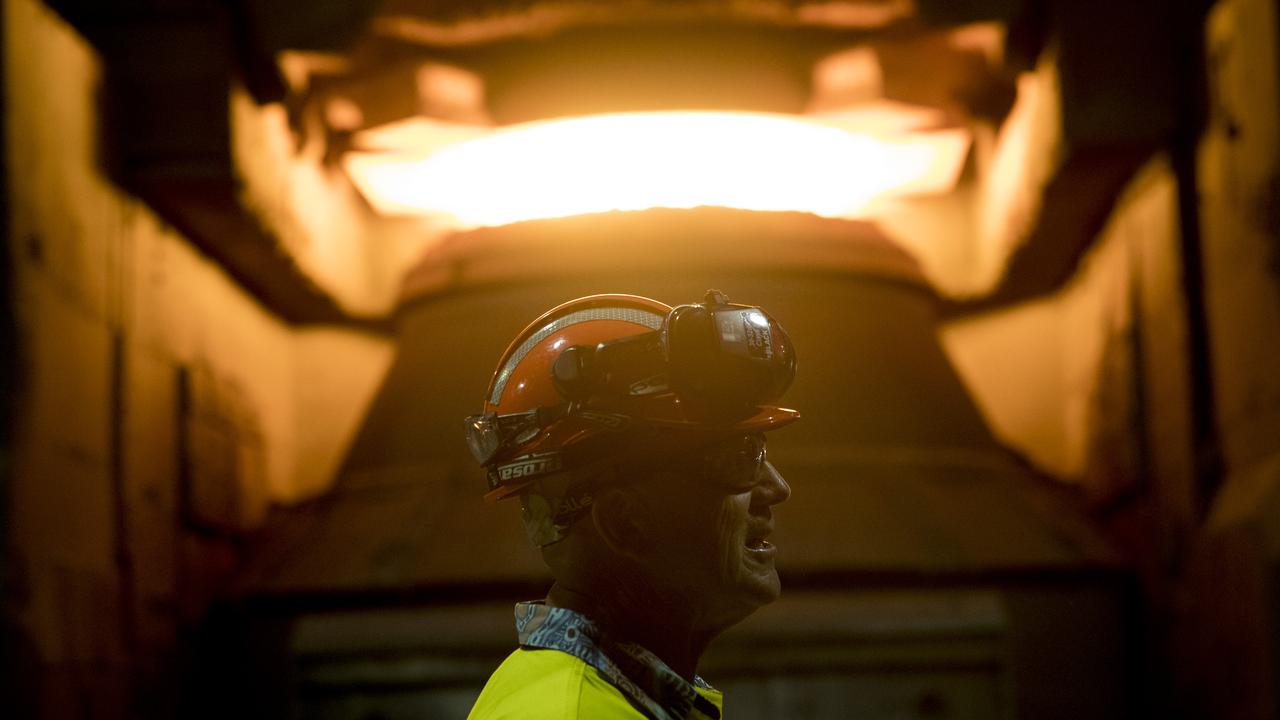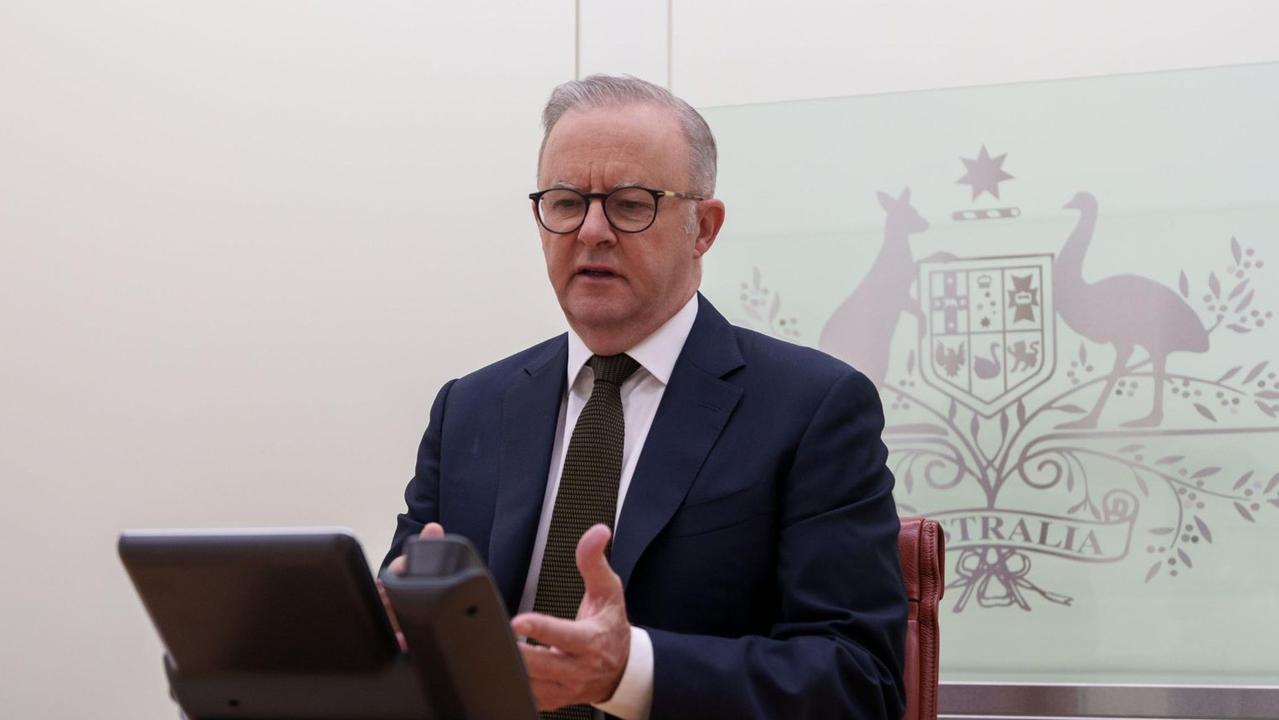Vikki Campion: The Voice debate has already cast its victims and villains
If you dare suggest you do not support a Voice to parliament you have already been cast as the villain of the story, regardless of your reasons, writes Vikki Campion.
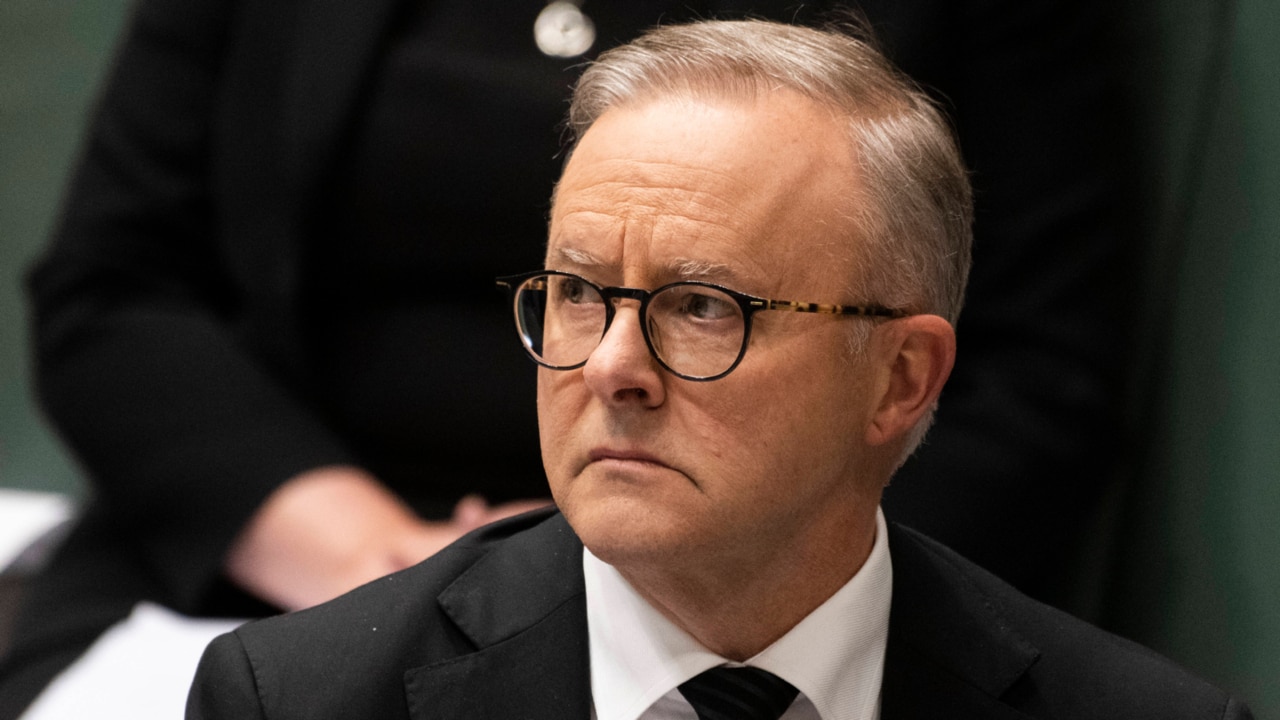
Opinion
Don't miss out on the headlines from Opinion. Followed categories will be added to My News.
Like trainwreck reality show Married At First Sight where contestants are married and then asked to fall in love with people they have never met, we have been asked to marry and then fall in love with a new racial clause in the Constitution without ever being given the fine print.
The reason reality TV marriages rarely last more than a few weeks is because when the details do emerge, they realise the union is untenable.
In this situation, the Yes case is not what we want but it’s what we have waiting at the altar.
We will be dragged down the aisle by Aunty Guilt and television producers forcing a guileless victim-villain narrative to live the rest of our lives in resentment.
But it’s a marriage we can never get a divorce from.
If we dare suggest that we don’t want to enshrine a political body that could be swiftly legislated into a risky, expensive and unnecessary constitutional change, we are cast as the shallow heartless villain who refuses to marry the philosopher, forever condemned.
The tone from the top drips down.
Every Question Time when the PM has been asked about Voice policy, he goes for character assassination of the questioner rather than being honest with details.
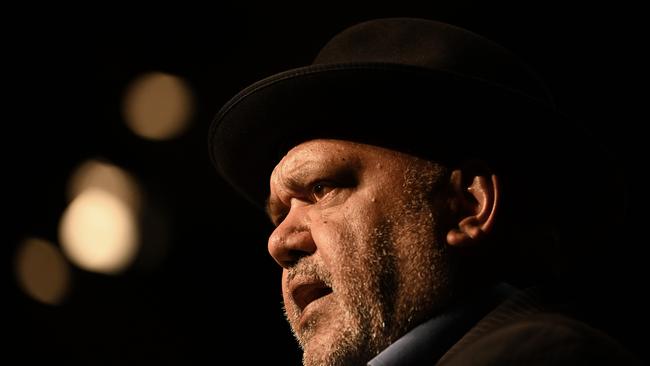
When Liberal leader Peter Dutton concluded that he would campaign against the Voice, the Yes case villainised him as quickly as a MAFS producer on their way to raise the ratings.
It would be great theatre, except our nation’s future hangs upon it.
What if Dutton had said this about senior Voice architect Noel Pearson as Pearson did about Dutton?
“I couldn’t sleep last night, I was troubled by dreams and the spectre of the Albanese Labor Party Judas betrayal of our country. I see the leader of the Labor Party, Mr Albanese, as an undertaker preparing the grave to bury all Australians being treated equally regardless of race.”
ABC commentators would be apoplectic on morning radio, calling for the immediate resignation of a divisive Opposition Leader as utterly unacceptable for our nation.
Yet for Pearson to say similar on the ABC about Peter Dutton? He gets a 16-minute armchair ride uninterrupted. It’s the Victim Edit, after all, spitting warranted rejection’s spite on the villain.
What if Dutton accused Pearson of being trapped in an “activist celebrity vortex” being used by left-wing think tanks to “punch down on white fellas” – as Pearson accused Senator Jacinta Nampijinpa Price of doing?
Pearson’s commentary spearheaded the Senator’s inbox being flooded with notes which are far too revolting and offensive to publish here.
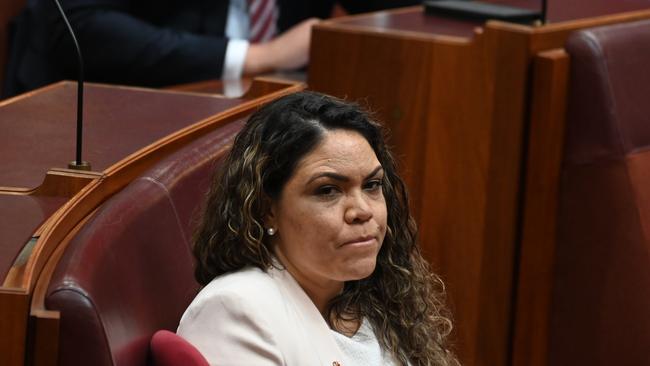
Ah yes, the enlightened kind Yes case who wants to hear Indigenous voices. And you wonder why we are not busting to enshrine our union in the Constitution. As victims, the Yes case’s rudeness is virtuous, while the No case’s explained reasons are outrageous – of course, the basis for a fair appraisal of facts.
What if Dutton had said what Professor Marcia Langton, co-chair of the Indigenous Voice to Parliament design group, said about him: “I think they rely absolutely on deceit and misrepresentation and, I have to say, a great deal of ignorance. They want to sow confusion and doubt.”
Dutton would be obliterated from public discourse immediately.
That the proponents of the Yes case in the media and the Prime Minister’s office have been so quick to remove it from a debate requiring careful consideration of consequences, especially the impact on the executive – to name a few, cabinet ministers, the PM, the Governor-General, the Reserve Bank governor and the chief of the Defence Force – to a discussion as binary as a reality show edit, shows how much work they have to do.
Victim = Yes. Villain = No.
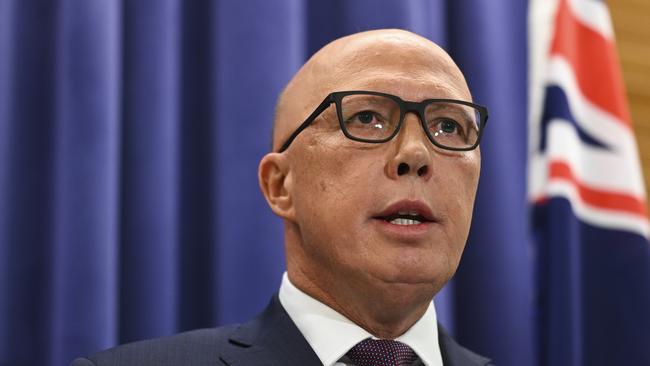
It just does not cut it.
Documents from the original working group released under Freedom of Information laws reveal that “any Voice to Parliament should be designed so that it could support and promote a treaty-making process” and that treaty must include a “fixed percentage of Gross National Product. Rates/land tax/royalties”.
Meeting minutes also reveal changing the names on the map so that “Aboriginal names for places and things across Australia should be the norm, and used by wider Australia” and changing the flag because “the Australian flag symbolised the injustices of colonisation”.
“The Dialogues discussed that a Treaty could include a proper say in decision-making, the establishment of a truth commission, reparations, a financial settlement (such as seeking a percentage of GDP), the resolution of land, water and resources issues, recognition of authority and customary law, and guarantees of respect for the rights of Aboriginal and Torres Strait Islander Peoples,” the documents released by the National Indigenous Australian’s Agency said.
Treaty, too was discussed as requiring constitutional force.
Why should we have to rely on FOI to get this detail?
Why can’t the Yes case be clear rather than being deliberately evasive to the undecided?
If the Yes case is being honest that the Voice is an advisory body and not a precursor to treaty to take a percentage of GDP and GNP, why does it need constitutional power? Why not legislate it now?
And what is the point of a constitutional change when the Prime Minister and Yes case advocates within both Labor and the Coalition routinely fail to meet with Indigenous people who make an effort to come to Canberra, including former Minister Ken Wyatt, who flatly ignored a delegation who came to Parliament to call for action on their murdered sisters? Apparently, it wasn’t the Voice the then-minister wanted to hear. That edit doesn’t fit the narrative, so it inevitably ends up on the cutting room floor.




